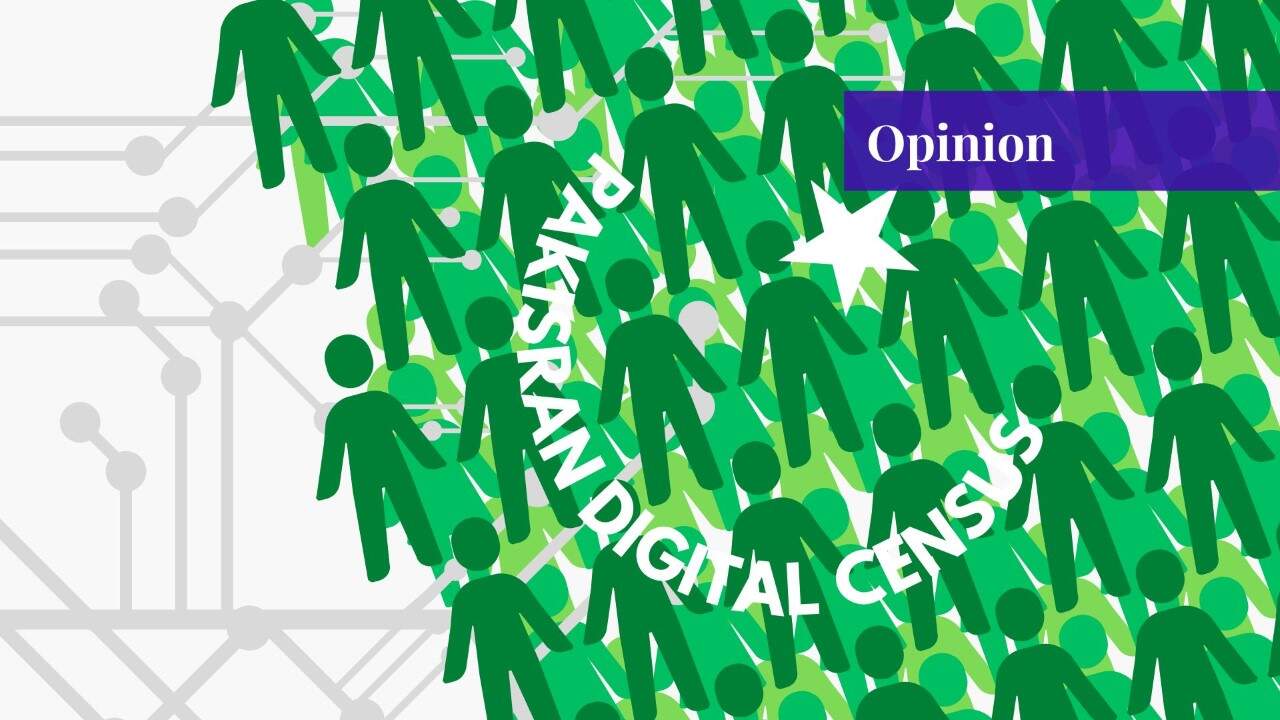Muhammad Azam Khan is an electronics engineer by profession and did his bachelor's from the Usman Institute of Technology. He is a freelance graphic designer and independent blogger who mostly writes on current affairs and women's issues. He has a keen interest in national and international politics.
Introduction
The 2023 digital population and housing census of Pakistan which began on March 1, 2023, is currently in its final stages and is set to conclude on April 4, 2023. It seeks to improve resource allocation for public welfare by policymakers and the private sector. The inaugural digital census in Pakistan is a significant milestone for the country, as past methods of counting people were contentious, with concerns raised by various groups about inaccurate counts and the exclusion of marginalized communities.
The government of Pakistan intends to address the above issues with the 2023 digital census through geo-tagging and real-time data collection and transmission. To collect data from across the country, 126,000 enumerators were equipped with tablets that contained more than 30 questions covering areas such as population count, religion, ethnicity, gender, disability, and businesses. According to the chief statistician, the estimated expenditure on the exercise is around Rs 34 billion ($122 million).
For the collection of data, the country was divided into blocks, with each unit having between 200 to 250 households and each enumerator being assigned two blocks in their respective areas to collect data in one month. During this phase, enumerators collect data on household members, their demographic characteristics, and various socio-economic indicators, as well as housing characteristics.
Obstacles
However, despite the government’s efforts, the census has encountered several challenges, particularly in the city of Karachi. Technical issues, lack of security, lack of allowance disbursement to enumerators, and other miscellaneous problems have slowed down the process in the city.
One of the significant issues encountered by the enumerators was the lack of security provided to them during the census process. The officials were unable to enter the field as they were not given security. Due to this, many enumerators, especially female staff, faced the challenge of harassment during their survey. The government should ensure that all enumerators are given adequate security measures to carry out their work without any hindrance.
Additionally, technical malfunctions in the tablets have been causing delays in the data collection process. The tablets continue to freeze during the process, and the frequent updating of apps has created problems for the enumerators, causing a halt in the data collection. The government should ensure that the tablets used by the enumerators are thoroughly tested before deploying them for data collection. Moreover, the app should be updated before the census starts to prevent any delays or interruptions during the process.
Furthermore, many enumerators are currently hired teachers by the Sindh government who have yet to receive their salaries for six months. The enumerators are also complaining about the unpayable travel allowances promised by the government. According to the Pakistan Bureau of Statistics (PBS), the travel allowance budget has been disbursed to local governments. However, none of the district’s enumerators received their travel allowance.
Moreover, due to the lack of adequate advertisements for the 2023 digital census by the government of Pakistan, people are still unaware of the process and skeptical about sharing their data with the enumerators. As government-hired teachers are conducting the survey, the already deteriorated education system of Sindh has faced a shortage of teachers in the school. Pupils are unable to complete their syllabus for their final exams which are due in May 2023, as many teachers are busy with census duty.
Along with this, the time and month allotted by the government for conducting a census are challenging for enumerators as it has been conducted during the month of Ramadan. Due to these issues, the enumerators in Karachi are protesting and demanding that higher authorities ensure they are provided with fuel charges and daily allowance without any delay, or else they will boycott the census campaign.
Despite the challenges, Pakistan’s Chief Statistician Naeem Zafar recently announced that 60 percent of the population has been counted so far, with a total of 140 million people and approximately four million houses enumerated. However, enumeration in Karachi seems unachievable within the due time. The government needs to address these issues to ensure that the census can proceed smoothly and accurately.
Adequate security measures need to be put in place to protect enumerators and facilitate their work, while technical issues with the tablets need to be resolved quickly to avoid any further delays. Additionally, the government needs to ensure that enumerators receive their salaries and allowances in a timely manner to keep them motivated and committed to the census process.
Conclusion
In conclusion, the 2023 digital census in Pakistan is facing several challenges that need to be addressed in order to ensure that accurate data is collected. The issues of security, technical malfunctions, delayed allowances, and lack of public awareness need to be resolved to ensure that enumerators can effectively carry out their duties. It is important for the government to take these concerns seriously and take action to ensure that the census process is completed successfully.
If you want to submit your articles, research papers, and book reviews, please check the Submissions page.
The views and opinions expressed in this article/paper are the author’s own and do not necessarily reflect the editorial position of Paradigm Shift.



















